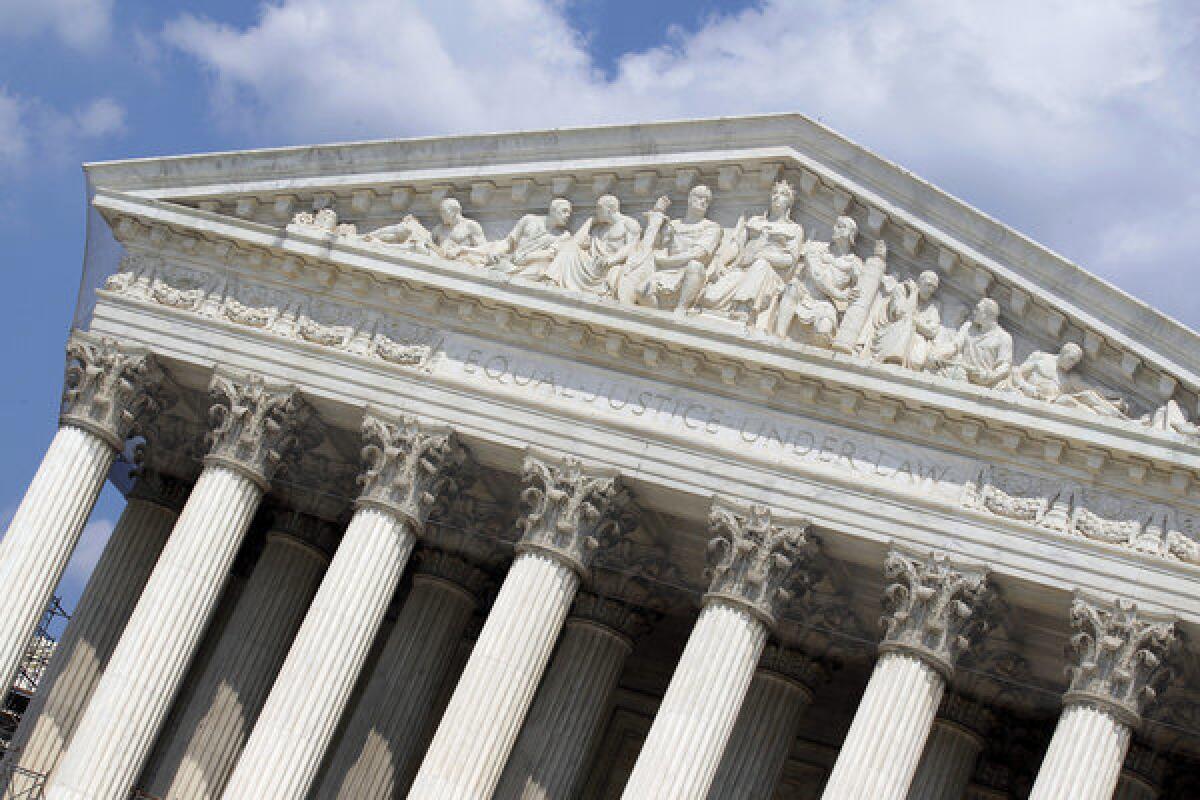What Nov. 6 means for the Supreme Court

The future of the Supreme Court is the forgotten issue in this year’s presidential election. This is surprising and disturbing because a president’s picks for the federal judiciary are one of the most long-lasting legacies of any presidency. There is a sharp contrast between the types of individuals that Barack Obama and Mitt Romney would place on the Supreme Court and the lower federal courts, yet neither is saying much about it.
Recent history powerfully shows the importance of presidential elections to Supreme Court decision-making. Imagine that Al Gore or John Kerry had been elected president and one of them, rather than George W. Bush, had been able to replace William Rehnquist and Sandra Day O’Connor in 2005. The high court likely would not have found a right for corporations to spend unlimited amounts of money in elections in Citizens United vs. Federal Election Commission (2010), or a right of individuals to own and possess guns in District of Columbia vs. Heller (2008), or upheld the federal Partial Birth Abortion Ban Act in Gonzales vs. Carhart (2007).
By contrast, if John McCain had been elected in 2008 and replaced David H. Souter and John Paul Stevens, the court surely would have upheld Arizona’s restrictive immigration law, SB 1070, in Arizona vs. United States (2012), and there would be six votes on the court to eliminate affirmative action in Fisher vs. University of Texas, which was argued on Oct. 10.
COMMENTARY AND ANALYSIS: Obama vs. Romney
There certainly is the possibility for a vacancy on the Supreme Court during the next presidential term. Four justices are in their mid- to late 70s: Ruth Bader Ginsburg is 79; Antonin Scalia and Anthony M. Kennedy are both 76; and Stephen G. Breyer is 74. Although it is conceivable that none of these justices will leave the bench in the next four years, most think that one or two vacancies are likely.
The stakes are potentially enormous. For example, Romney has expressly said that he wants to see Roe vs. Wade overturned, while everyone expects that any Obama nominees to the court would vote to affirm it and keep a constitutional right to abortion. On the current court there are four sure votes to overturn Roe: Chief Justice John G. Roberts Jr. and Justices Scalia, Clarence Thomas and Samuel A. Alito Jr. If Romney were to be president and able to replace Ginsburg or Breyer, there would be five votes to overrule Roe, and once more, women in many states would be left to choose between an unwanted pregnancy and an unsafe, illegal abortion.
On the other hand, if Obama is reelected and has the opportunity to replace, say, Scalia or Kennedy, there would be a liberal majority on the court for the first time since 1969. It is likely that these justices would reconsider Citizens United and undo the devastating effect that this decision has had on our political system in allowing unlimited corporate expenditures in elections. There surely would be a majority to allow marriage equality for gays and lesbians, though this may already exist if Kennedy is willing to join the four liberal justices in finding such a right.
Although much less visible, presidential elections also determine the composition of the lower federal courts. The vast majority of cases are never heard by the Supreme Court. Last year, the high court decided only 65 cases out of almost 10,000 petitions for review. In the overwhelming majority of cases in federal courts, it is the appeals courts that get the last word. Federal district court and court of appeals judges also have life tenure and often remain on the bench for decades. There has been a huge difference between Democratic and Republican appointees in areas such as individual liberties, civil rights and access to the courts.
So why are the candidates ignoring this issue? Their advisors probably have told them that voters don’t care, or at least that it is unlikely to matter to the crucial undecided voters. But this may well be creating a self-fulfilling prophecy because voters won’t care unless the candidates choose to make the composition of the courts an important election issue.
But I have seen that audiences do care greatly about the future of abortion rights, the corrosive effects of money in politics, the rights of gays and lesbians to marriage equality and so many other issues that are decided by the courts. All this and so much more will turn on who picks the next Supreme Court justices.
Erwin Chemerinsky is dean and professor of law at the UC Irvine School of Law.
More to Read
A cure for the common opinion
Get thought-provoking perspectives with our weekly newsletter.
You may occasionally receive promotional content from the Los Angeles Times.










